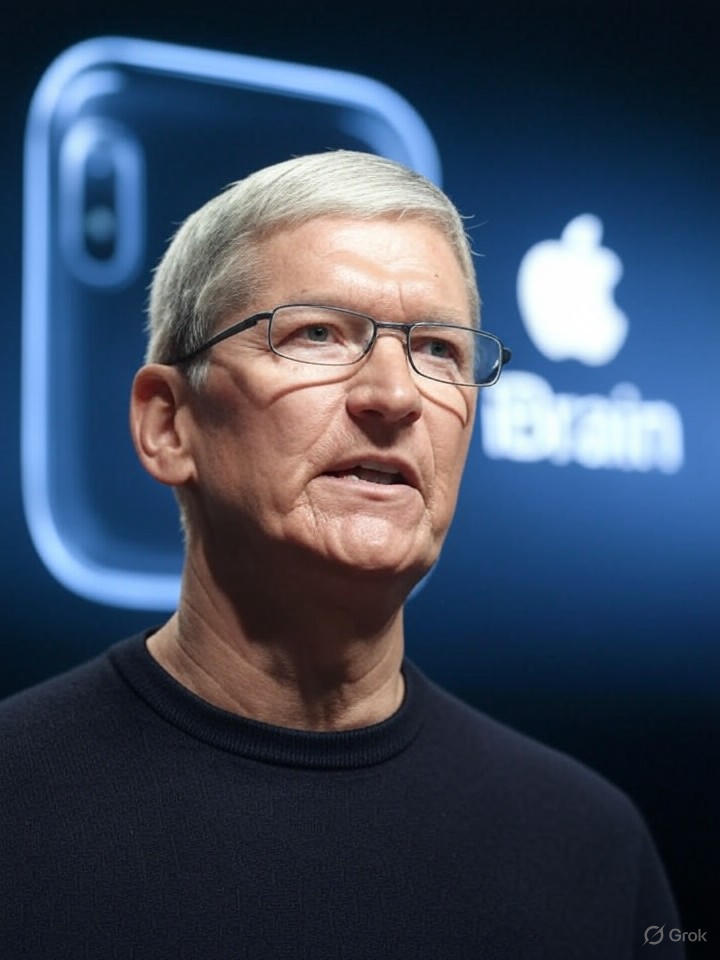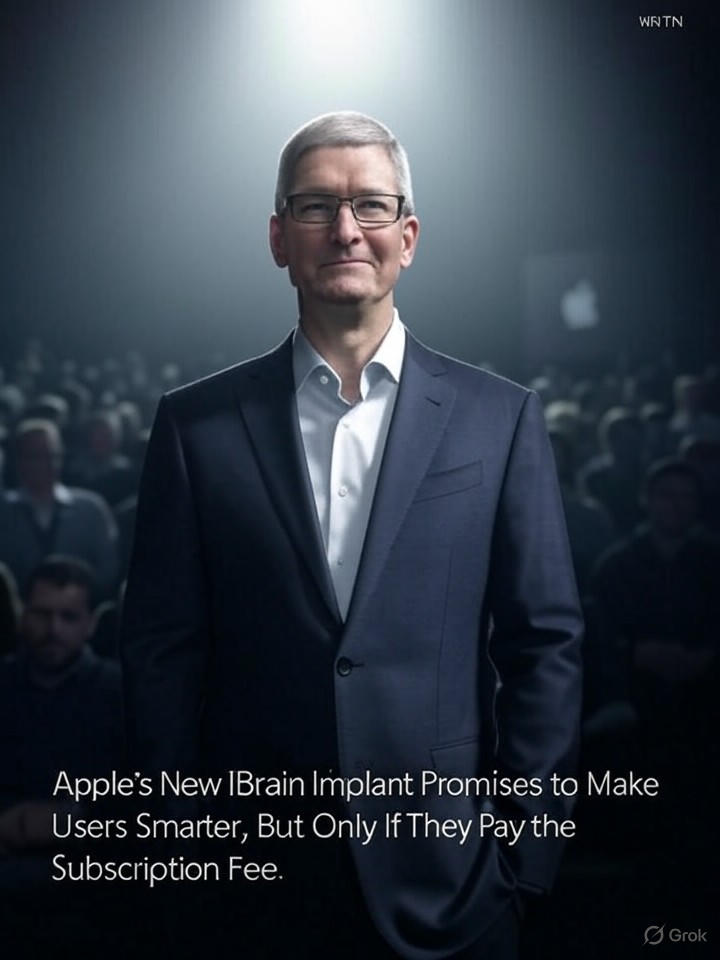CUPERTINO, CA – In a keynote event that had tech enthusiasts drooling and privacy advocates fuming, Apple CEO Tim Cook introduced the iBrain, a revolutionary neural implant designed to boost human intelligence. 'Think different – literally,' Cook quipped, as holographic brains danced across the stage. The device promises to enhance memory, speed up problem-solving, and even suggest witty comebacks in real-time, but only for those willing to shell out monthly fees.
The iBrain implants directly into the user's cerebral cortex via a minimally invasive procedure that Apple assures is 'as painless as updating your iOS.' Base features include basic cognition boosts, like remembering where you left your keys or calculating tips without a calculator. However, premium perks such as 'Genius Mode' for advanced creativity or 'Focus Pro' to eliminate distractions require a subscription starting at $19.99 per month. Miss a payment? Enjoy your brain reverting to factory settings – aka, your natural, unenhanced state.
Critics were quick to pounce, labeling the iBrain as the ultimate in corporate brainwashing. 'Apple isn't content with owning your pocket; now they want your mind,' said tech analyst Sarah Byte from Consumer Watchdog. She pointed out that without the subscription, users might experience 'neural throttling,' where thoughts slow down during peak brain hours. One satirical tweet summed it up: 'Finally, a way to pay for the privilege of thinking clearly!'
Early adopters, however, are lining up. Tech bro influencer Chad Innovate posted a video of his implantation, raving about how he solved a Rubik's Cube in under 10 seconds post-op. 'It's like having Siri in my skull, but smarter and with ads,' he enthused. Apple plans to integrate iBrain with its ecosystem, allowing seamless syncing with iPhones for 'thought-to-text' messaging and augmented reality dreams – all for an extra fee, of course.
Privacy concerns loom large, with fears that Apple could access users' innermost thoughts. The company insists data is encrypted and only used to 'improve user experience,' but skeptics worry about targeted ads popping up in daydreams. 'Imagine zoning out and suddenly craving an iPad,' warned privacy expert Dr. Nora Snoop. Apple dismissed these claims, stating, 'Your thoughts are safe with us – as long as you keep paying.'
In a twist of irony, the iBrain's launch coincides with reports of Apple's R&D team struggling without their own implants due to budget cuts. Insiders joke that the device was invented to help executives remember why they're charging so much. Meanwhile, competitors like Google are rumored to be developing a free alternative called MindMesh, but with twice the ads and half the privacy.
As the iBrain rolls out next quarter, the world watches to see if this is the dawn of enhanced humanity or just another subscription trap. Will users upgrade their brains or stick to good old-fashioned thinking? One thing's for sure: in Apple's world, intelligence isn't innate – it's in-app purchased.

